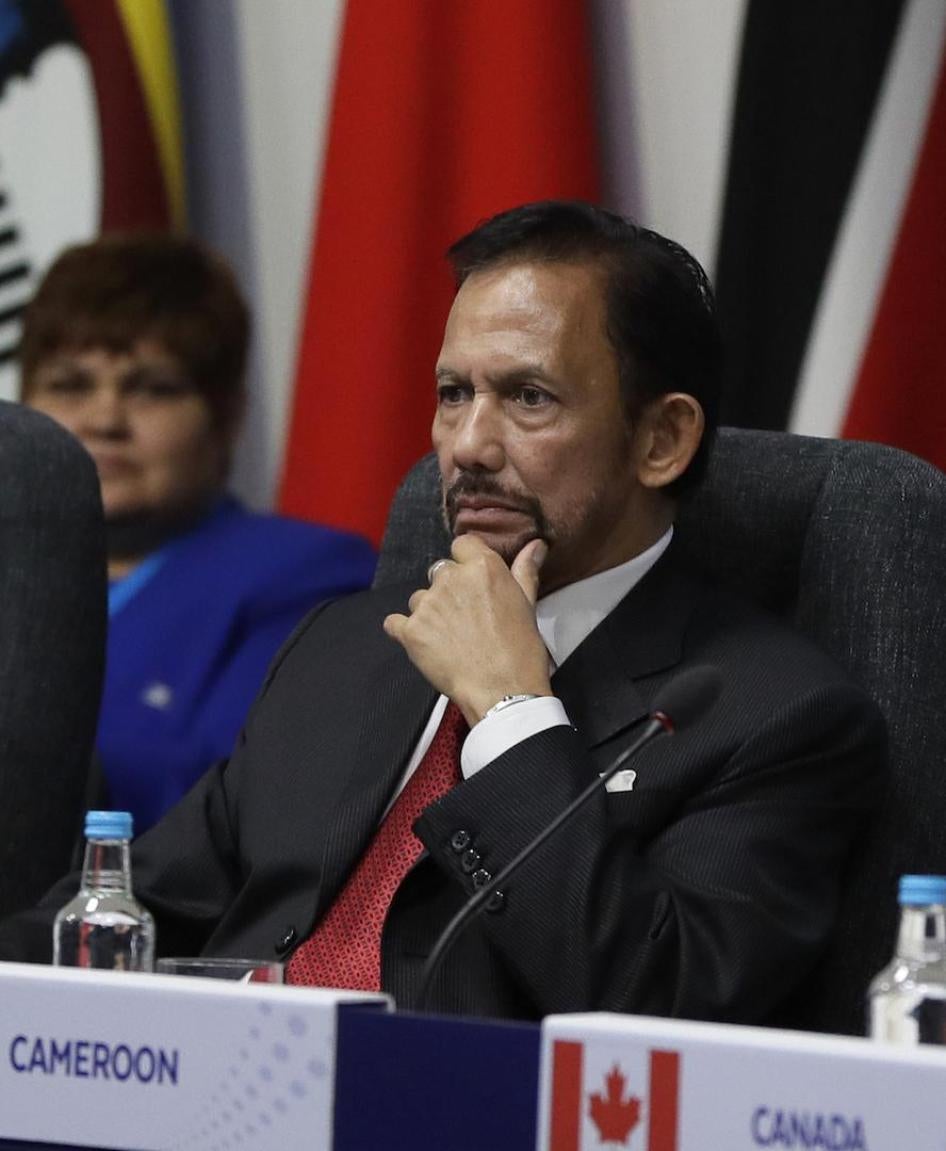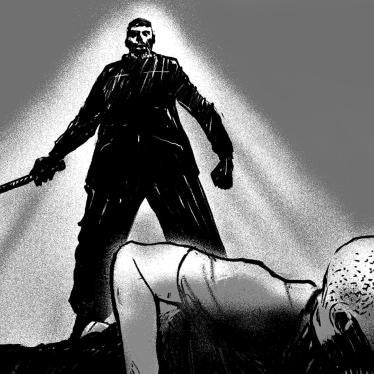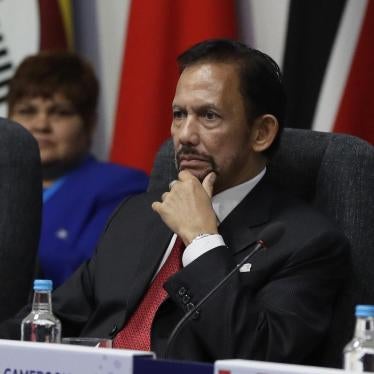Brunei will appear before the United Nations Human Rights Council in Geneva on May 10 as part of its Universal Periodic Review, slated every four years. The review comes shortly after Brunei put into effect a new Sharia penal code that contains punishments including death by stoning, amputation, and whipping. It’s a timely opportunity for countries to ask Brunei some tough human rights questions – and demand answers.
With Brunei, where does one start? The penal code is essentially a roadmap for violating rights. It requires death by stoning for sex outside marriage and anal sex; amputation of limbs for stealing; and 40 lashes with a whip for lesbian sex. It punishes transgender people, women seeking abortions, and anyone who criticizes Islam. Children who have reached puberty face the same punishments as adults, including the death penalty, and even younger children may be whipped. The penal code runs rampant over Brunei’s international human rights obligations including the rights to life, expression, religion, privacy, and individual autonomy, and freedom from torture and other ill-treatment.
When the new law sparked an international outcry, Brunei’s ruler, Sultan Hassanal Bolkiah, announced that the country’s de facto moratorium on the death penalty – which has been in effect for two decades – would remain in place. But this will bring little solace to those facing arrest under this abominable law. The sultan could reverse his decision on a whim, and the punishments of amputation and whipping could still be used. Even if its harshest provisions are not enforced, the law will serve its evident purpose: to terrorize and silence people, and cement discrimination against LGBT people and women.
No one should accept Brunei’s cynical attempt to reassure critics that the government “strongly upholds the fundamental principles of human rights,” as its report to the UN claims. The Sharia penal code is a shocking affront to rights, and governments around the world should call for its immediate repeal.









